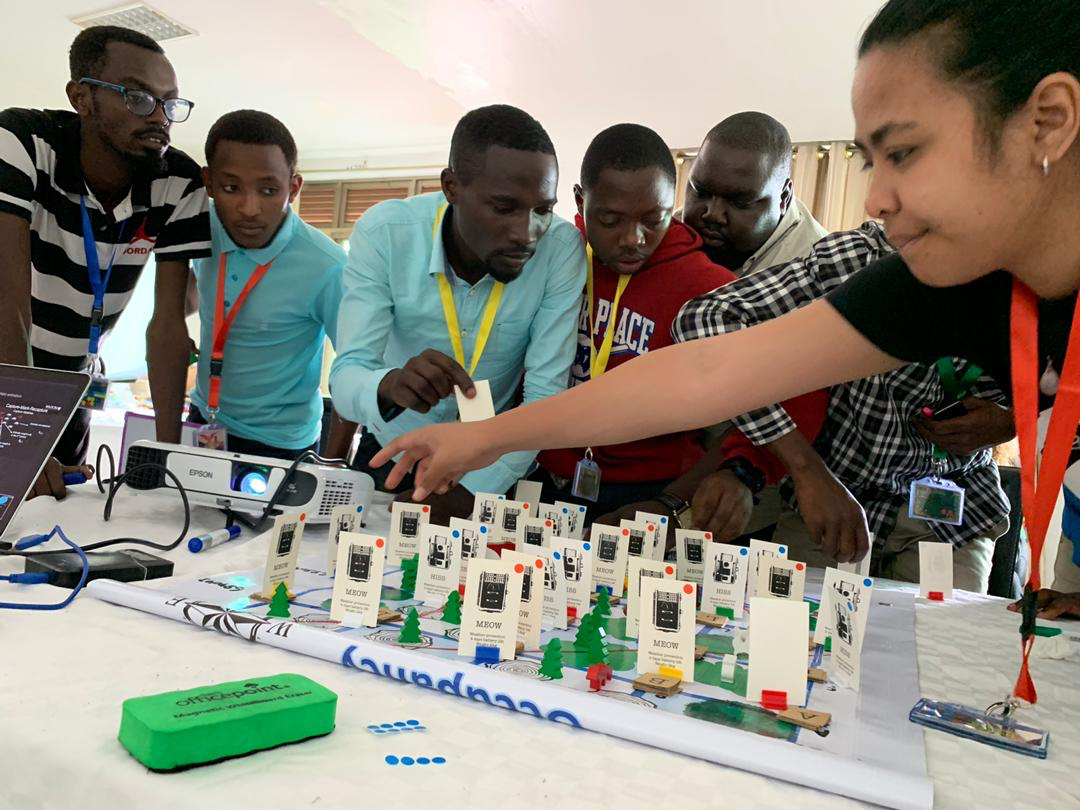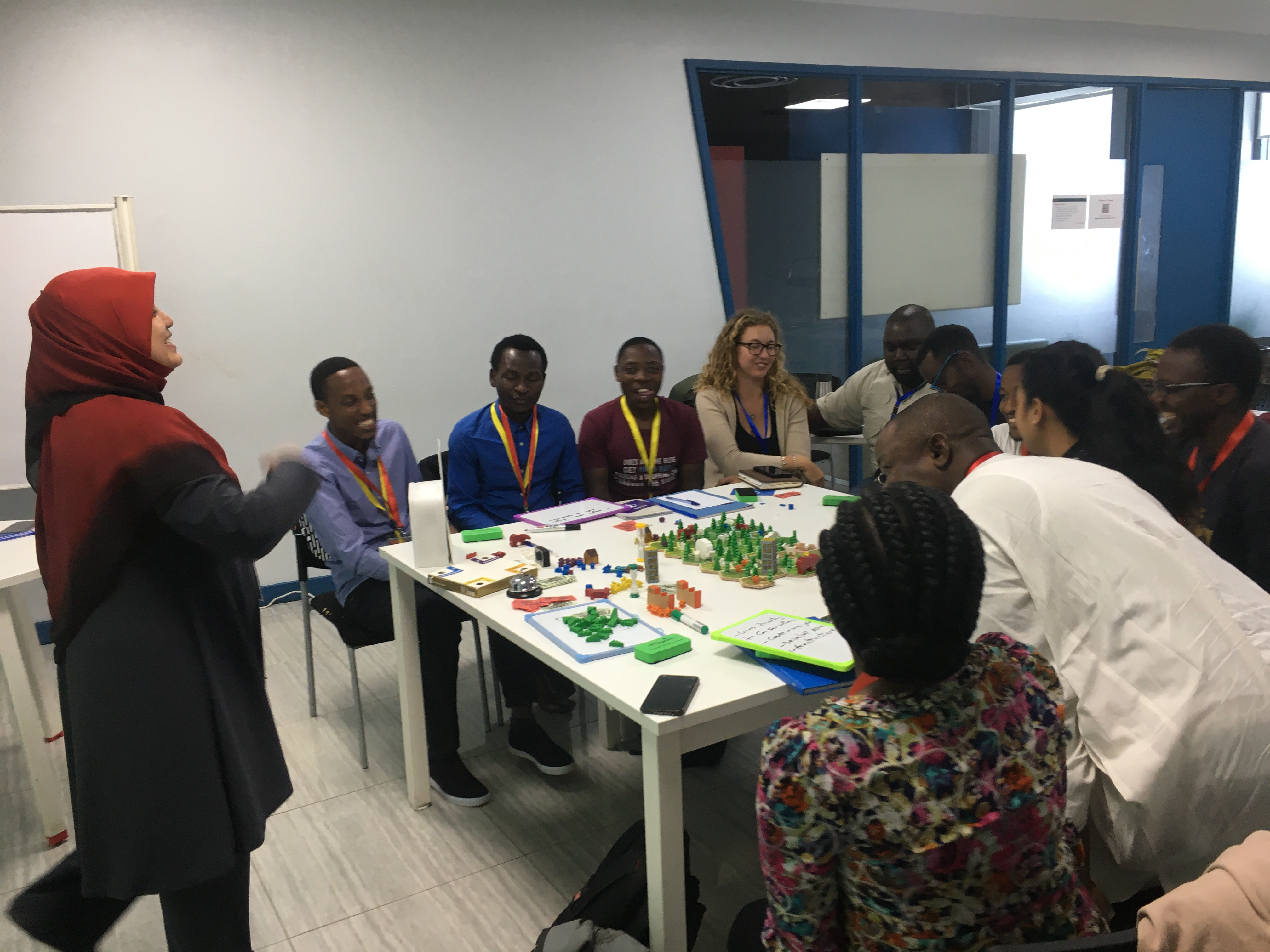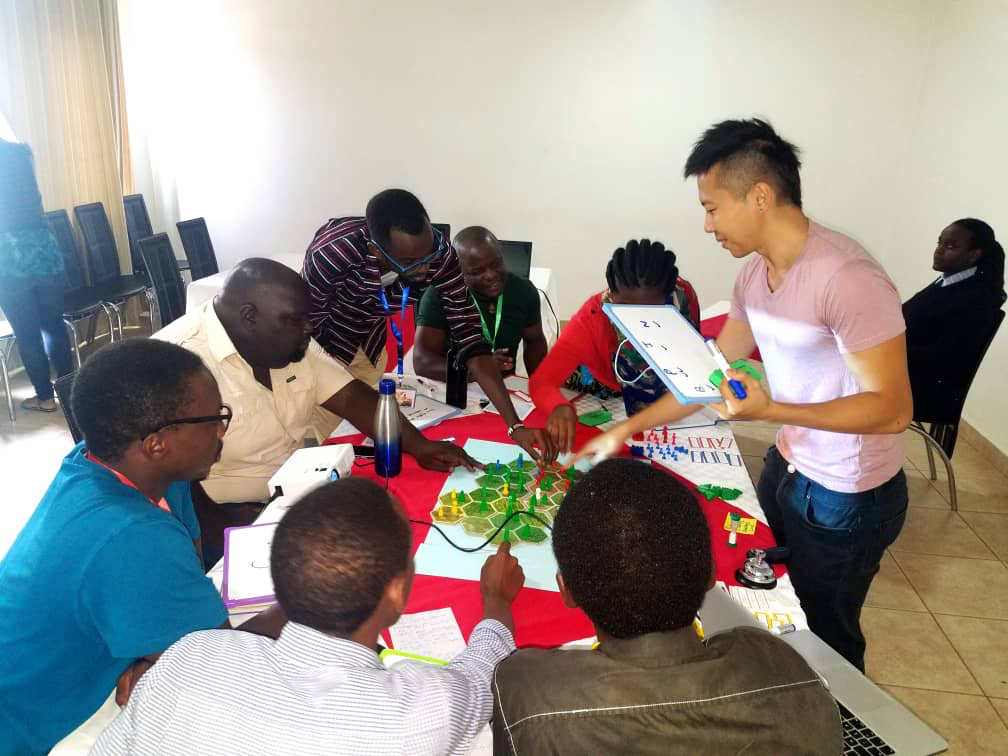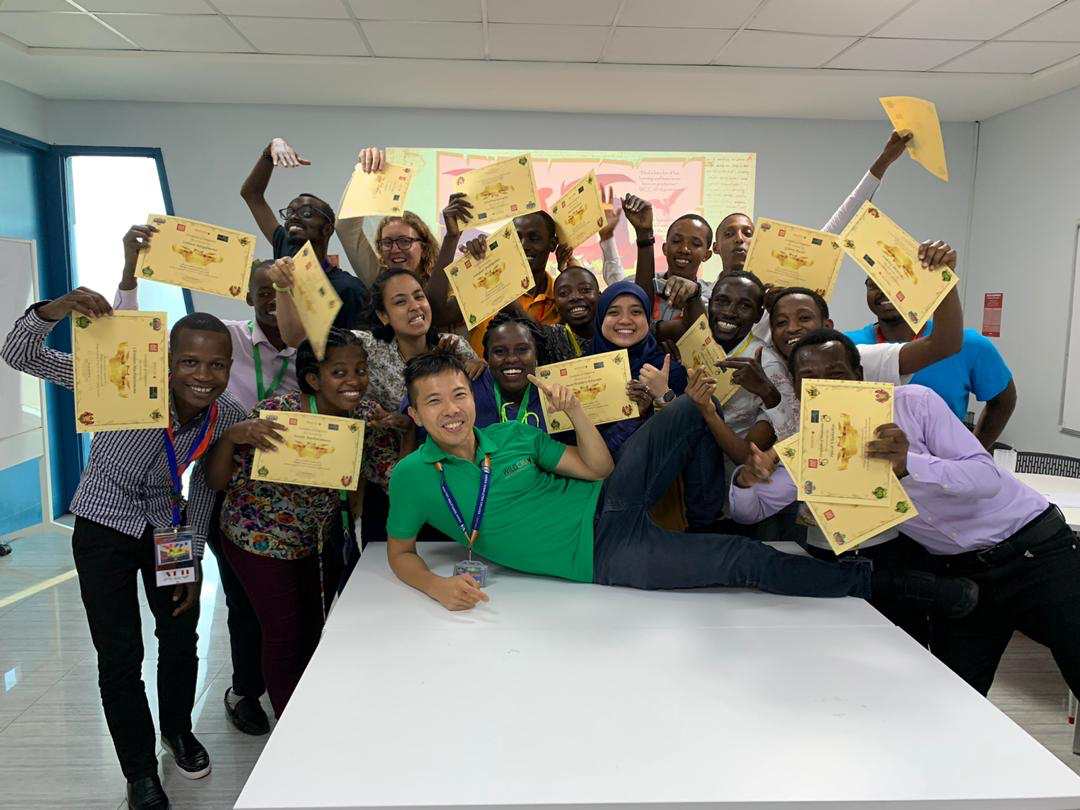News
Wildlife Conservation Course hosted in Africa for the first time
WildCRU has collaborated with the African Leadership University School of Wildlife Conservation to bring the face-to-face Wildlife Conservation Coursen(WCC) to conservationists based in Africa in November 2019. For this course, we had 20 participants in all, with participants from Kenya, Zimbabwe, Zambia, Rwanda and 4 other countries. Many of them were on-the-ground field managers working on large mammal conservation.
The overarching goal of the course is to cultivate in participants a set of research, analytical and communication skills with cutting-edge learning and technological tools, while simultaneously assessing their performance.
We also adopted technology-enhanced learning techniques during this course. Three of the eLearning modules (conservation research, statistical analysis and spatial analysis) were vital components of the flipped classroom learning during this course. Such an eLearning technique helped cater to students of different learning abilities and of different languages.
Our core team
Joining us for the 2nd time teaching this course is Nurul Asna Hidayah from Malaysia. She was a WCC participant in 2017 and subsequently became a teaching assistant for WCC 2018 and 2019 and for the eLearning WCC Asia and Africa. We are extremely proud of her competence in teaching and the students loved her. Here’s what she has to say:
“Immensely fortunate to be a part of WCC journey in Africa. I am very inspired with participants’ commitment to learn more and enhance their skills throughout the course. I am also grateful to be able to engage with a diverse group of environmental enthusiasts and I am in love with the colourful, warm environment too. I look forward to many more engagements to spread knowledge in fun and interactive ways!”
Our management team comprised of students from the African Leadership University. They were very proactive and supported the administration and research of the course.
“Working as a Wildlife Conservation Course management team member is undoubtedly one for the books. I developed my interpersonal and project management skills working in a fantastic team and learned so much about a gamified approach to conservation from the side. Of course, working under the guidance of Dr Cedric Tan was an oxymoron- he was fun yet uncompromising. This combination is why the course was a success!” – Gugulethu V. Dube, Personal Assistant
“The whole period was full of learning and learning new things. Being a Personal Assistant was a new challenge for me where I learned a lot from communication [which I was highly anxious about], negotiation, administration, logistics, prioritization, and teamwork. I really can’t thank you enough for how you made me love conservation in general. ” – Osee Nkurikiyimana, Personal Assistant
“It was an invigorating experience in all sense from the interactions with the students to the experience with the facilitators. I learnt a lot about carrying out impactful education by observing student reactions and facilitation methods. I surely took in much that I think I can implement elsewhere and I am grateful for this opportunity” – Edward Okeyo Obala, Research Assistant
” It has allowed me to grow in the research field, and it has been a great platform for me to contribute my skills. Throughout the experience, I have grown, I have learnt and I have had fun.” – Lydie Umuhire, Research Assistant
“Working with the WCC Core Team catalysed my desire to learn and interact with conservation efforts in the field. Not all learning and work opportunities bring out teamwork, efficiency and critical thinking in conservation in such a fun and engaging setting like the WCC experience.”- Raini Sydney, Research Assistant
What participants have to say
“No matter how knowledgeable and experienced I was on Wildlife Conservation in Tanzania, WCC has made me so rich with a great positive impact on my job and studies” – Francis R. Makari, MSc in Biodiversity Conservation student at the University of Dar es Salaam & Ecologist at The Ngotongoro Conservation Area Authority in Tanzania.
“I loved Cedric’s teaching method that involved games and challenges. I have gained insights from other conservationists sharing their experiences without going through an experience myself. I have more confidence as a science storyteller, researcher & conservationist.” – Felix Kipngetich, Filmmaker.
” The WCC not only enhanced my skills in biodiversity and population monitoring but also in data analysis and comprehensive knowledge on globally occurring terrestrial conservation challenges that are likely to impact on wildlife”. – Abraham Njenga, Park Warden Ol pejeta conservancy Kenya, wildlife blogger www.iamjusticeforwildlife.org
“WildCRU’s WCC challenged me to learn new skills and develop existing skills, which has undoubtedly improved my confidence and my ability to work effectively both at work, in my research and my interests outside of my job. It was amazing to meet so many people from different countries, organisations, and perspectives of wildlife conservation. The discussions, variety of teaching activities, and sharing of ideas were so valuable in developing each and every one of us- Isabel Rowles, Priority Species Monitor for Wildlife ACT, based in Zululand, South Africa
Future directions for 2020 and 2021
We aim to capitalise on our previous success and network to train a further 100 conservationists each from Africa with the Wildlife Conservation Courses. Based on our experience and on the feedback of past participants, we will advance the frontiers in learning with virtual reality, webinars and small group tutorials. Finally, we aim to create more modules such as leadership skills to make the course more holistic.
We plan to ensure the long-term sustainability of these free courses by working with our partners to raise funds from the government and NGOs, as well as train participants to help deliver the course.
“It has been one of the best teaching experiences in my life. The students were very keen on learning and they engaged really well with the real-life serious games in classes. More importantly, I believe the students have learned to apply the skills to protect the African wildlife.” – Cedric Tan









